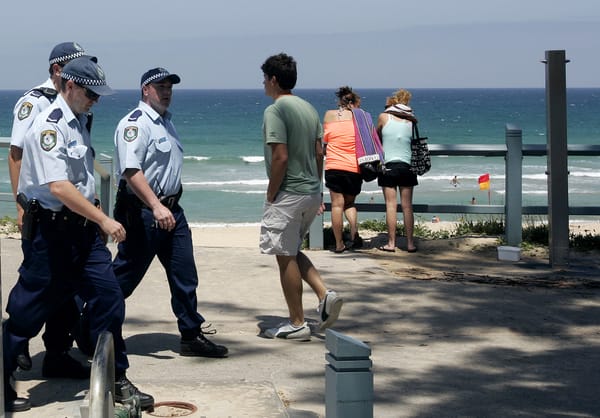In the early 2000s, Sydney was rocked by a series of gang rapes. Victims were ordinary Australian girls, some as young as 13. The perpetrators were Muslim, mostly Lebanese and some Pakistanis. Two cases—the Skaf brothers case and the Khan brothers case—received extensive newspaper coverage, but the phenomenon was more widespread. Sexual assault rates increased 25 percent between 1996 and 2003 in Sydney, even as every other type of violent crime was declining.
The gang rapes were similar to the “grooming gangs” operating in Great Britain during the same period. The difference is that in Britain the problem was allowed to fester. Australia nipped its problem in the bud, thanks to the way its authorities handled the problem.
The first thing Australia did right was to prosecute the perpetrators vigorously and hand down long sentences. The second was refusing to shy away from the racial angle. Some voices in the media and the Muslim community wanted this aspect suppressed, but the attackers had used racial language during the assaults (“We’re going to rape you, you Aussie sluts,” “If a Leb wants to fuck you, you fuck them”), and judges and politicians addressed these remarks publicly.
The only blight on Australia’s handling of this period was the Cronulla race riot of 2005. No one was killed or seriously wounded, but white crowds chased Middle Eastern men down the street of the seaside suburb, throwing beer bottles and shouting, “Fuck off, Lebs!” The immediate spark was the beating of two volunteer lifeguards by eight Lebanese youths the previous week, but that incident had been preceded by months of rising tensions over harassment and intimidation of white beachgoers by the Lebanese. And, of course, the gang rapes were in the background.
